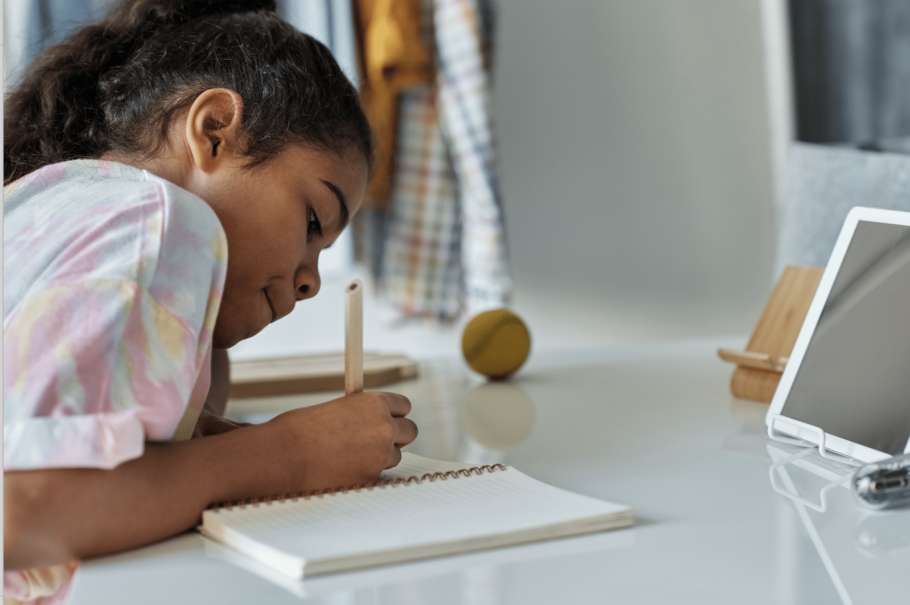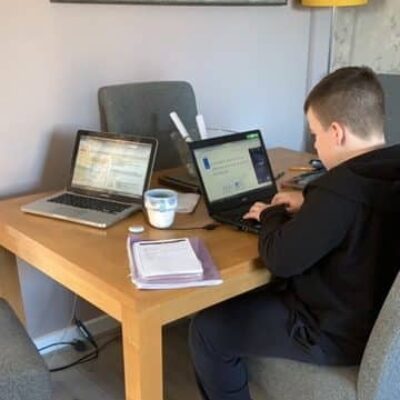Before 9 am Usual Routine – Wake up at the usual time, get washed, dressed and make your bed. Eat a healthy family breakfast and talk about the day ahead.
9.00 to 10.00am Exercise – Go for a walk, practice some yoga or do an online workout video. Get energised for the day ahead!
You could watch: 9am PE with Joe Wicks
10.00 to 11.00 Academic time – Whether you are home schooling your child, or their school has set work for them, or they’re old enough to get on with studies on their own – use this time to focus on an academic subject.
You could watch: 10am Maths with Carol Vorderman
11.00- 12.00 Creative time– If you have younger children spend some time doing arts & crafts, cooking, or music. If you have older children do they have a creative project they can get on with or a musical instrument to practice?
You could watch: 11am English with David Walliams
12.00 Lunch- Make a healthy lunch and try to eat together.
You could watch: 12pm Lunch with Jamie Oliver
12.45 -1.30- Chore time- It is important that families pull together, and everybody helps with a range of daily chores, so clean up after lunch together.
You could watch: 1pm Music with Myleene Klass
1.30- 2.30 Quiet time- Everyone in the family could benefit from some quiet, alone time. This could be spent reading, or doing puzzles or even napping.
You could watch: 1.30pm Dance with Darcey Bussell
2.30 – 4.00 Academic time– More studying or home schooling on an academic subjects
You could watch: 2pm History with Dan Snow(free for 30 days)
4.00- 5.00 Exercise and fresh air- weather permitting, try and get outside walking the dog, bike riding, play in the garden.
5.00- 6.00 Dinner – eat together, help with setting the table and clearing up afterwards.
6.00pm onwards Routine as usual- Free time to enjoy TV, video games, storytime and usual bedtime routine.




